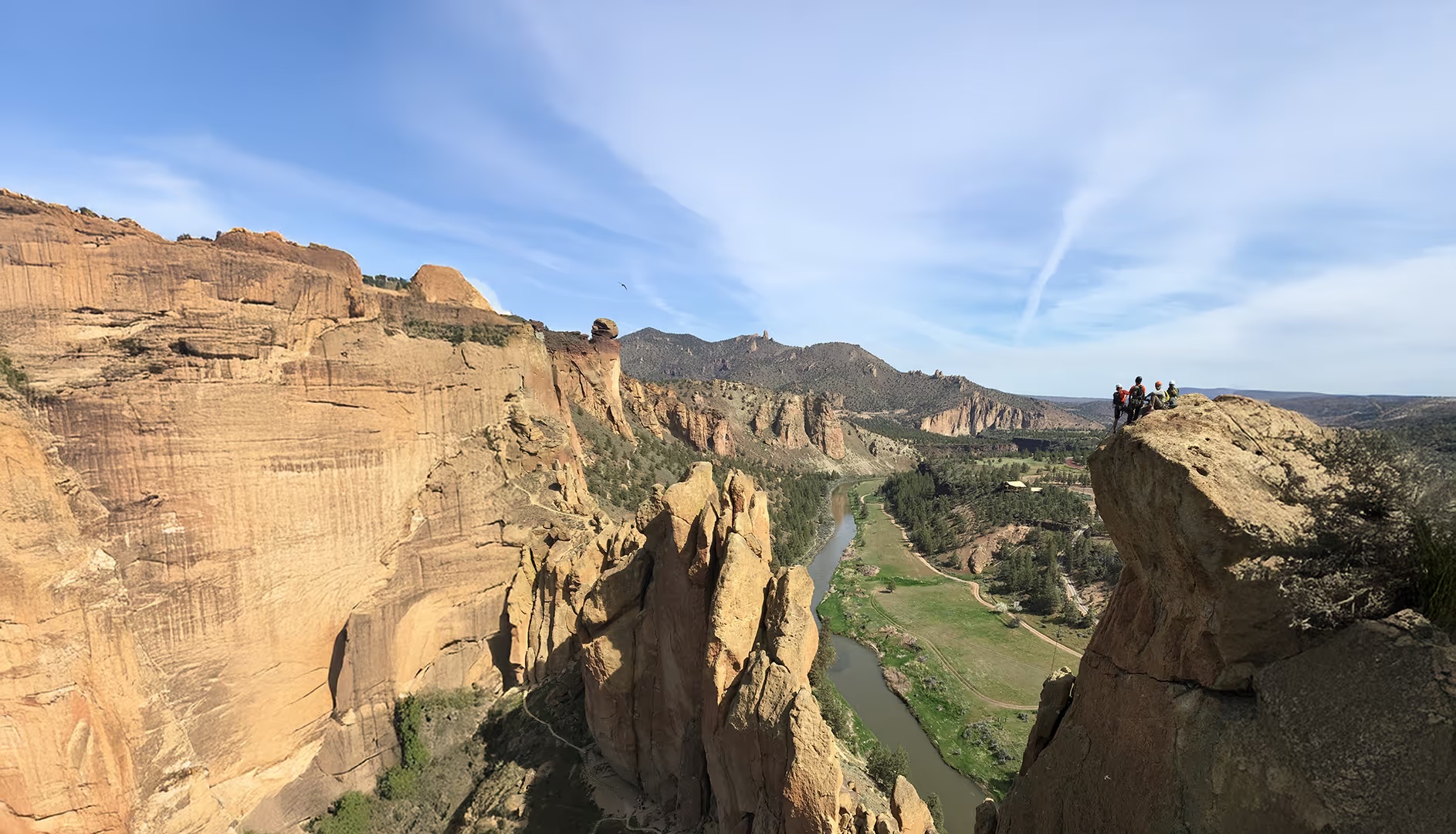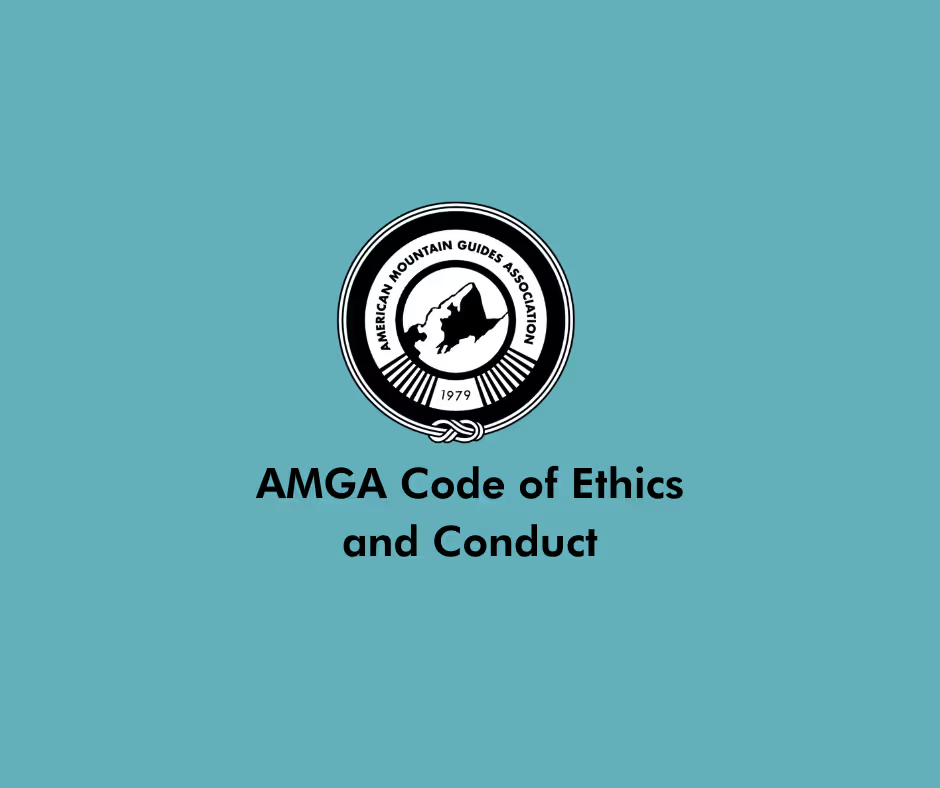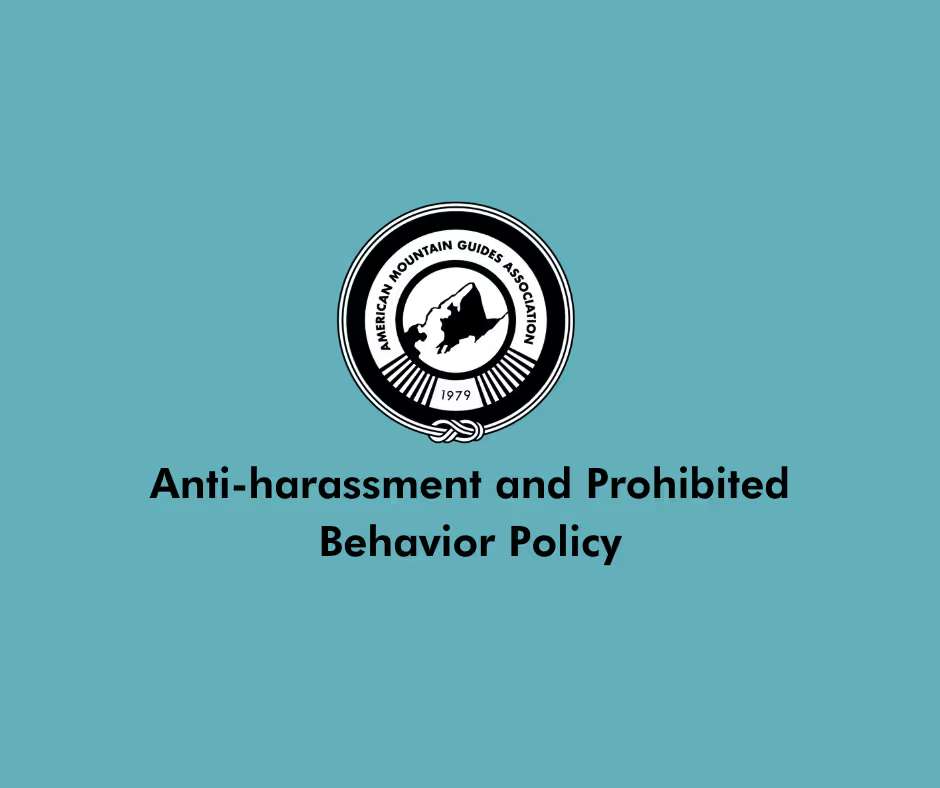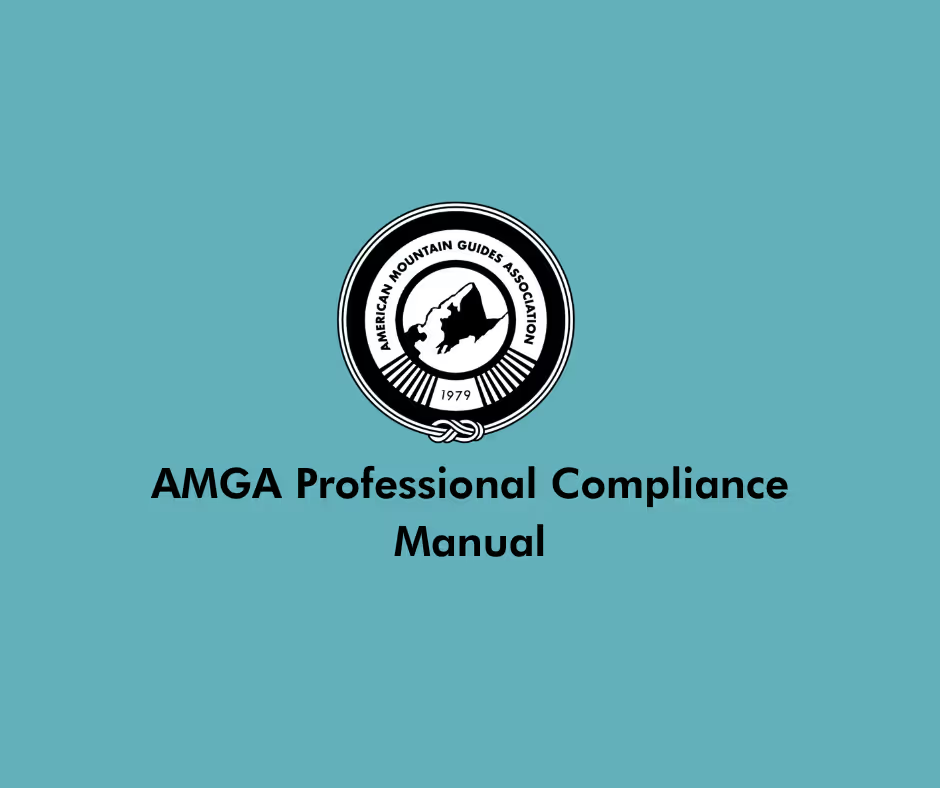Professional Compliance & Speak Up

The mission of the AMGA Professional Compliance Program is to promote professional integrity at the AMGA for the benefit of the AMGA community, the industry, and the public.
Lorem ipsum dolor sit amet, consectetur adipiscing elit. Suspendisse varius enim in eros elementum tristique. Duis cursus, mi quis viverra ornare, eros dolor interdum nulla, ut commodo diam libero vitae erat. Aenean faucibus nibh et justo cursus id rutrum lorem imperdiet. Nunc ut sem vitae risus tristique posuere.
About the Compliance Program

Program Governance
The AMGA Professional Compliance Program is governed by the AMGA Code of Ethics and Conduct, Professional Compliance Procedures, Anti-Harassment and Prohibited Behavior Policy, Scope of Practice, Logo and Brand Use Policy, and Member Agreement. Taken together, these policies describe the ethical and professional expectations of AMGA students, employees, board members, and Climbing Instructor Program Providers, and the process by which alleged violations of the AMGA Code of Ethics and Conduct are investigated and adjudicated.

Project Scope
The AMGA will accept complaints pertaining to the conduct of an AMGA employee, Board member, Climbing Instructor Program Provider, or participant on an AMGA course or exam.

Speaking Up
If an individual believes there has been a violation of the AMGA Code of Ethics and Conduct, the individual may report the alleged violation to the AMGA through the Speak Up platform. Complaints submitted through the AMGA Speak Up platform are received and processed by Investigations Law Group (ILG), a third-party investigations firm. Upon receiving a complaint, ILG determines the severity of the infraction, documents the complaint information, and works with the AMGA to review and adjudicate the complaint.

Requirements for Submitting a Complaint
- Complainant must provide their name and contact information when submitting a complaint (no anonymous complaints).
- Complaint must be submitted by an AMGA member.
- Complaint must clearly describe how the alleged misconduct violates the AMGA Code of Ethics and Conduct.
- Complaint must include documentable evidence of a violation that can be verified by the AMGA (screenshots, photos, email threads, video recordings, or other clear documentation; witness statements; admission of wrongdoing from respondent; etc.).
Submit a Complaint
Call 720-506-4935, or email Investigations Law Group at [email protected].

Compliance Program Resources
 AMGA Code of Ethics & ConductTopic 1
AMGA Code of Ethics & ConductTopic 1Upholding professionalism, integrity, and responsibility in guiding and instruction.
 Anti-Harassment & Prohibited Behavior PolicyTopic 1
Anti-Harassment & Prohibited Behavior PolicyTopic 1Promoting a safe, respectful, and inclusive environment for all guides and participants.
 AMGA Professional Compliance ManualTopic 1
AMGA Professional Compliance ManualTopic 1Navigating the Professional Compliance Process
Speak Up Frequently Asked Questions
The AMGA Code of Ethics and Conduct applies to the conduct of AMGA employees, board members, Climbing Instructor Program Providers, or participants on an AMGA course or exam. Violation of the AMGA Code of Ethics and Conduct may result in corrective action as outlined in the AMGA Professional Compliance Manual.
View this flow chart of the complaint process.
There are two different pathways available for the investigation and adjudication of complaints to provide for expediency and the most effective outcomes. The tier 1 pathway generally allows complaints to be addressed more quickly because it does not involve PCC review. It may be utilized for less severe allegations or allegations where communication between respondent and complainant can be facilitated. The tier 2 pathway requires the PCC to review the investigative findings and is typically utilized when the allegations are more severe. For a complete outline of the criteria used to determine which pathway may be used in different circumstances, see Articles 3.3-3.4 of the AMGA Professional Compliance Manual.
- Complaint timeline for a Tier 1 complaint (approximate)
- Intake and review: completed within 30 days
- Investigation: completed within 60 days
- Resolution: completed within 90 days
- Complaint timeline for a Tier 2 complaint (approximate)
- Intake and review: completed within 30 days
- Notification of investigation: completed within 30 days
- Investigation: completed within 90 days
- Failure to cooperate: established within 105 days (if relevant)
- Submission of findings to PCC: completed within 120 days
- PCC review and decision: completed within 180 days
Investigations Law Group (ILG) is a third-party investigations firm that specializes in workplace investigations, professional compliance, and human resources consulting. The AMGA contracts with Investigations Law Group to assist with the intake and investigation of Speak Up complaints. ILG receives complaints on behalf of the AMGA, reviews them for severity, and identifies which items of the AMGA Code of Ethics and Conduct may be violated. After completing the intake process, ILG completes an investigation or sends the information to AMGA staff for follow up and investigation.
- All reports will be kept confidential to the extent required by law; however, in many cases, it may be necessary for the AMGA to share a complainant’s identity with the respondent and/or witnesses in order for the complaint to be investigated and resolved.
- In the course of an investigation, the names and details associated with a complaint will be supplied to the AMGA and/or ILG staff handling the investigation.
- If a complaint is referred to the Professional Compliance Committee for review and adjudication, all names and identifying information will be redacted to promote impartiality in the decision-making process and fairness for the complainant and respondent.
The AMGA does not accept anonymous complaints.
When a complainant reports an alleged violation of the AMGA Code of Ethics and Conduct, the complainant needs to provide clear evidence of wrongdoing and/or witnesses who observed the alleged misconduct. AMGA staff will typically follow up with a complainant by phone to discuss the details of the complaint, confirm the availability of evidence, and describe the next steps in the process. Depending on the nature of the complaint, follow up conversations may be with AMGA staff or with an investigator at ILG. The AMGA and/or ILG may request to speak with a complainant, or request additional information, periodically throughout the complaint review and adjudications process. It is necessary for a complainant to stay involved in the process from start to finish so that we are able to do a thorough and balanced investigation.
It is strongly encouraged to report violations within six months of occurrence in order to facilitate accurate evidence collection and a timely decision. Delays in reporting may make it difficult for AMGA to gather information and reach a definitive conclusion regarding the alleged violation. The AMGA reserves the right not to investigate alleged violations that are not reported within 2 years of occurrence.
Criminal complaints received by the AMGA will be forwarded to the relevant authorities. If AMGA receives a complaint for which a criminal investigation is already underway, AMGA may decline to investigate until the criminal case is resolved.
The AMGA strictly prohibits retaliation against any individual for reporting alleged prohibited behavior or for assisting in a complaint investigation. The term “retaliation,” refers to behavior whereby an individual is treated differently, unequally, or negatively for reporting alleged prohibited behavior or for assisting in a complaint investigation. Any behavior that constitutes retaliation will be subject to review and corrective action.
A respondent may appeal a decision of the AMGA, ILG, and/or PCC resolving an alleged violation of the AMGA Code of Ethics and Conduct if the respondent believes that, in reaching the decision, the AMGA, ILG, and/or PCC committed a “Reversible Error.” The AMGA, ILG, and/or PCC commits a Reversible Error where it either: (1) fails to follow the processes and procedures outlined in the Compliance Manual; (2) interprets the AMGA Code of Ethics and Conduct in a manner that is unreasonable or arbitrary; or (3) imposes a sanction that is unreasonable or arbitrary. Appeals will not be allowed on the basis that the respondent merely disagrees with the AMGA, ILG, and/or PCC’s factual findings or factual conclusions.
Support the AMGA’s Mission by Becoming a Member
Lorem ipsum dolor sit amet consectetur. Aliquam risus et sed platea eu amet pretium id urna. Pellentesque a cras etiam velit libero. Facilisi eget nisi a sed mauris posuere auctor id.

